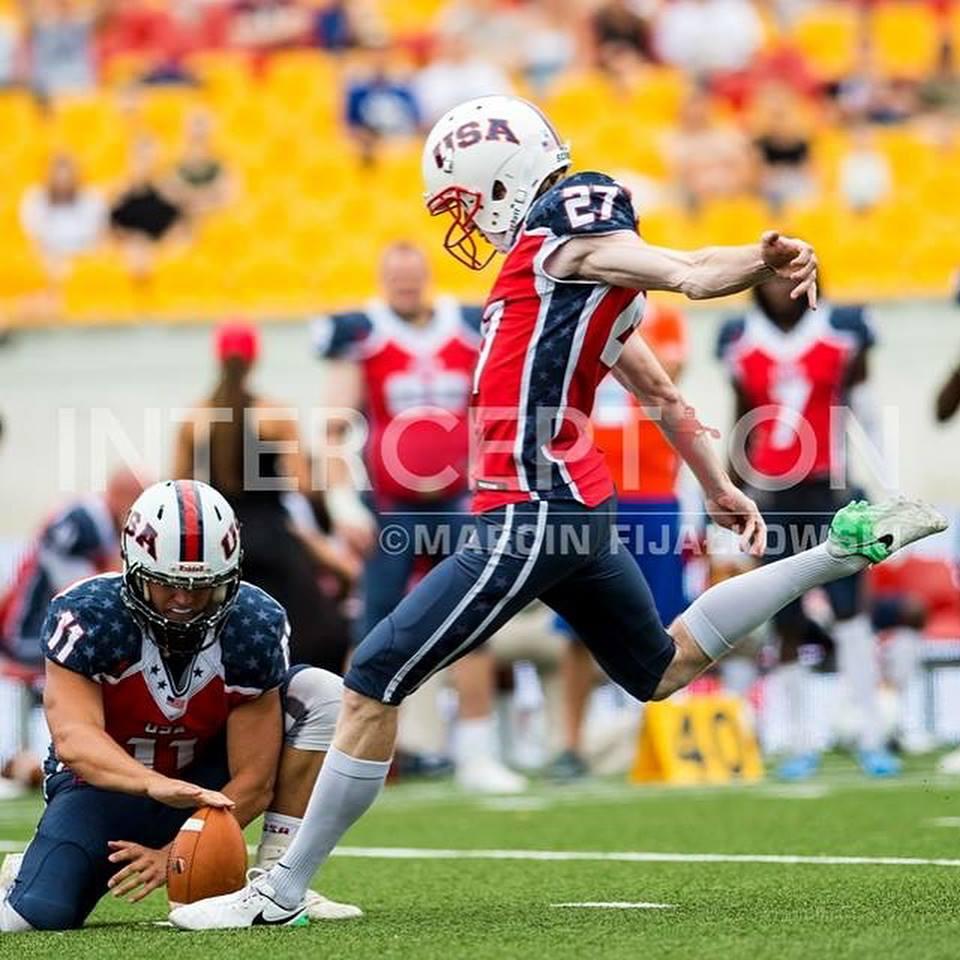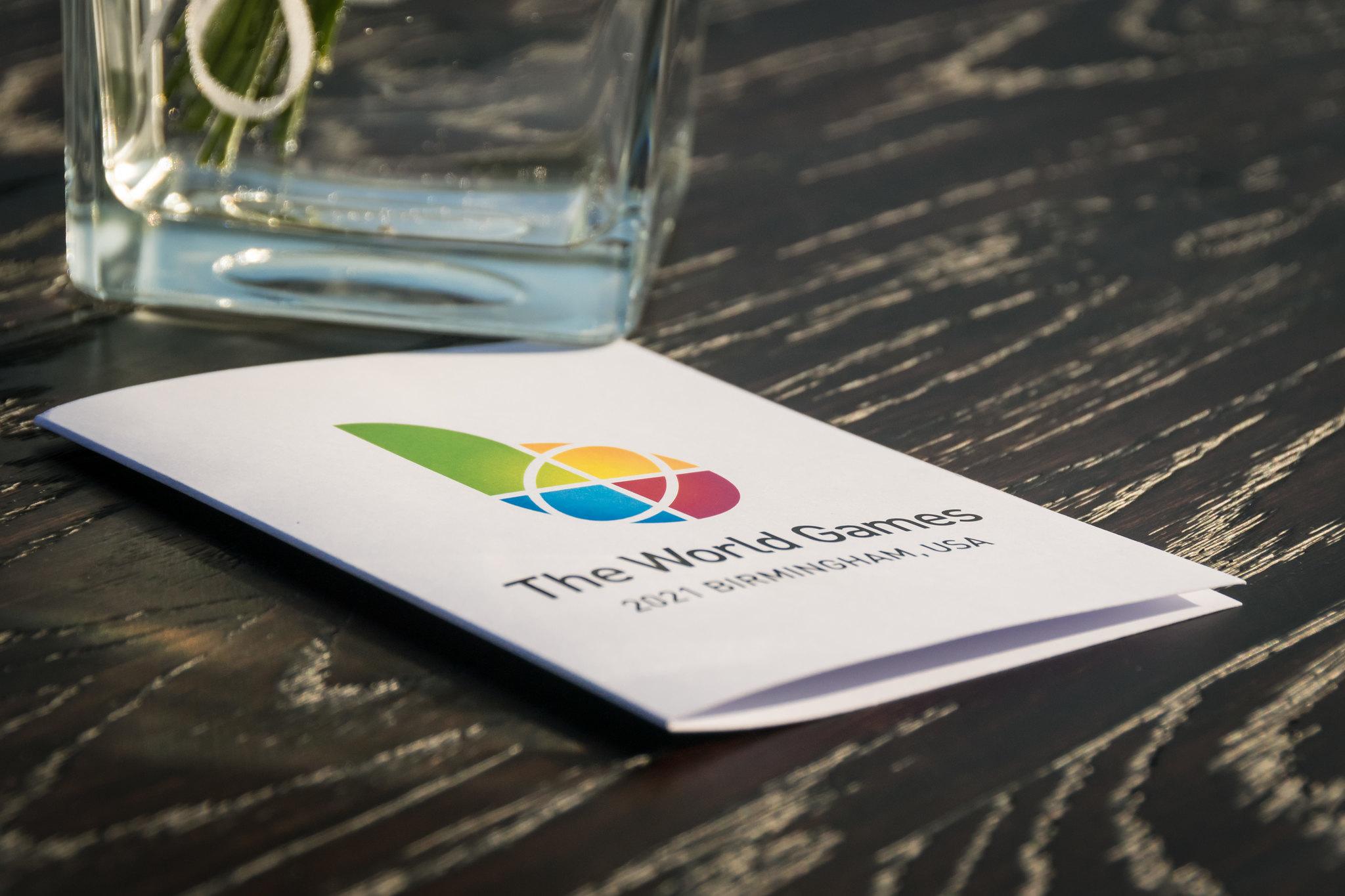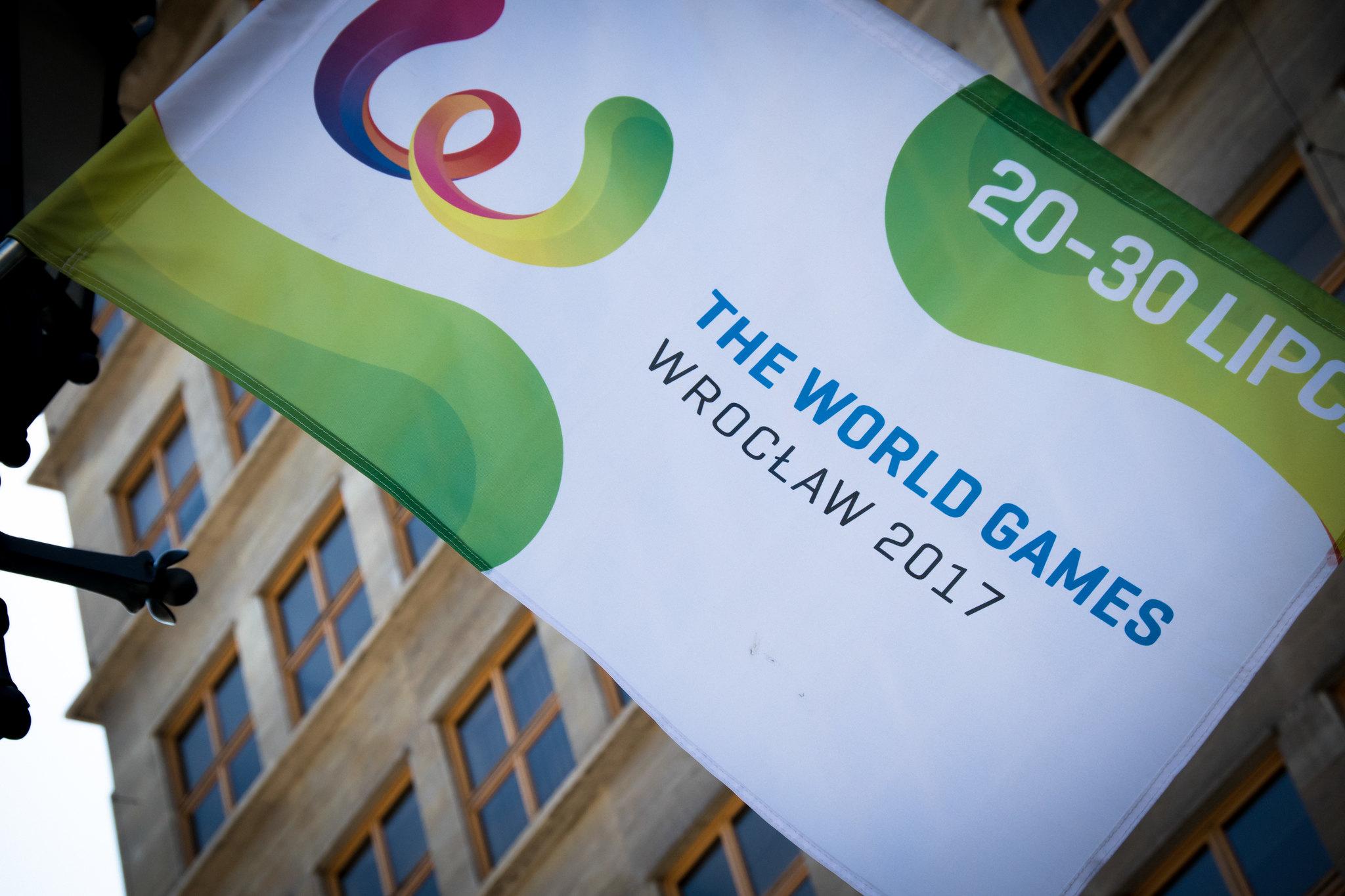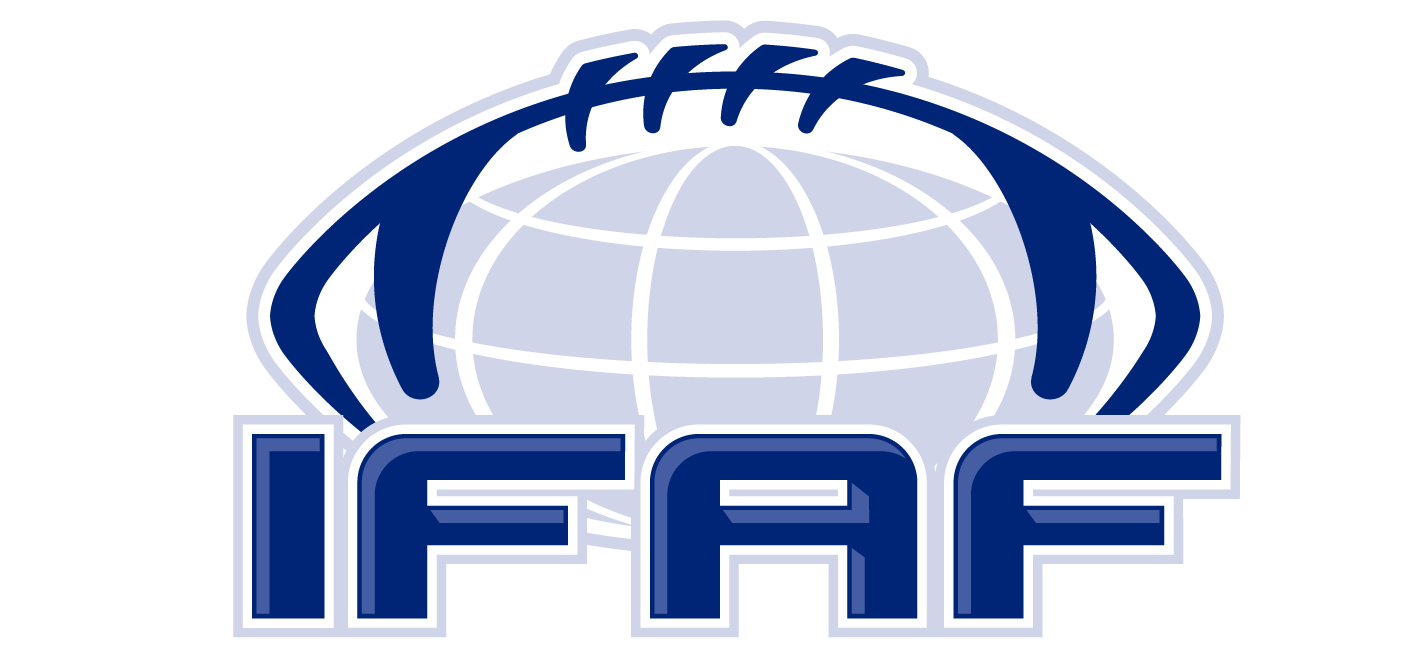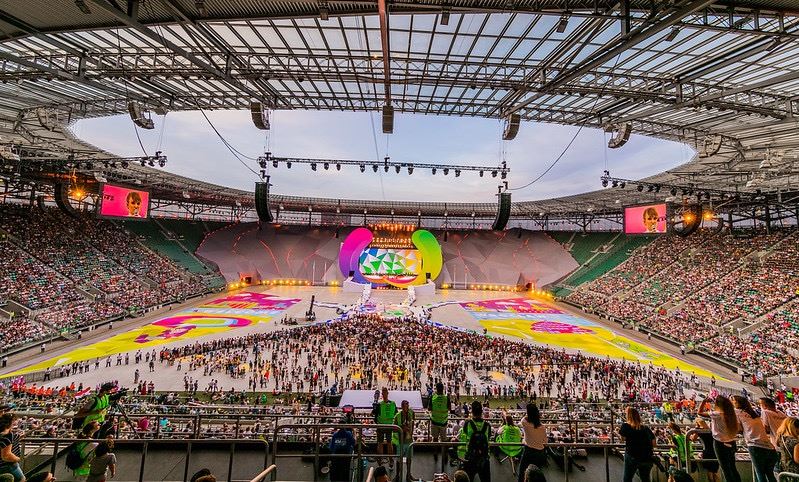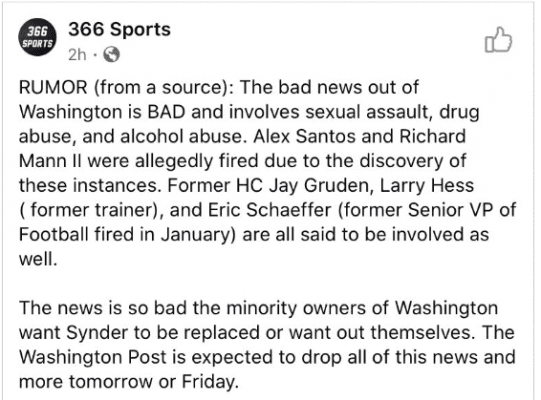-
Posts
43 -
Joined
-
Last visited
-
Days Won
1
Content Type
Forums
Events
Totallympics International Song Contest
Totallympics News
Qualification Tracker
Test
Published Articles
Everything posted by John Foyne
-

Summer Olympic Games Paris 2024 Venues
John Foyne replied to Totallympics's topic in Summer Olympic Games Paris 2024
Maybe this has already been covered here, but stumbled across this article and thought I would share. https://theathletic.com/5237758/2024/02/17/olympics-badminton-basketball-paris-lille/ To sum it up, an new swimming venue was in the plans to be built for the games, however, funding and COVID forced those plans to be scratched and swimming was moved to where gymnastics was going to be, forcing gymnastics to share a space with badminton and basketball. Basketball prelims have now been forced out to Lille, as they clash with badminton. Anyway, it's interesting that FIBA and international basketball pushed back against the move, but badminton has stood it's ground and has refused to budge for the bigger sport. -
Yes they are! I've been to two World Games - 2017 in Wroclaw and 2022 in Birmingham - let me say that the Wroclaw games were better ran and organized than the edition held in the United States.
-
Ok, thank you for clarifying!
-
Was curious about Brazil's sudden success in baseball against traditional powerhouses, so I took a glance at their roster. 11 of the 23 players are from Japan. Not to take anything away from the team, but I wonder how they made that work.
-
1) None of these sports are confirmed until the session, correct? So there is still a chance that one or two of these team sports will be left off. 2) I agree that adding four team sports will inflate the athlete quota and cost some individual sports quota spots. 3) Some random thoughts... Flag Football - I think people need to understand that American tackle football and flag football are actually two completely different sports. A team of "pro" flag players would wipe the floor with a team made up of NFL guys. Also, flag in the United States is driven by the female market. So many girls are playing flag that colleges and high schools now have teams. The biggest flag football league in the United States, USA Flag, caters all of their tournaments towards women. Women get better game times and fields at these tournaments. Also, an eight team tournament could be done in two days. Finally, the US teams don't exactly dominate flag football. The Mexican women won gold at the last World Games, and flag is a sport where athletes from other countries can pick up and excel easily if given enough time to fine-tune their skills. Pretty much checks all of the IOC's boxes. Cricket - I think it's pretty cool that cricket has a shot at inclusion in the Games. How did we not see this coming with the IOC session being in India, and the 2032 games in Australia? I understand that there is a ton of money involved, but it's nice to see something not so Euro-centric get the nod. I'm sure the US press will have fun covering it. Interested to see what the US team will look like. Squash - Speaking of getting nods. It's nice to see the sport on the verge of getting in after so many tries. It's almost like a reversal of the IOC's youth and urban agenda - as Squash tends to be a country club sport in the States. Baseball/Softball - Might be the last time we see these two on the program for maybe ever. Why not just go out with a bang and bring in MLB players? The game is global enough to do that. Just move the All-Star break to August. The MLB season already goes to November as it is. Might be the WBSC only hope to keep the sports on future programs. Lacrosse - This one is a head-scratcher for me, especially with the limit on athlete quotas. I didn't think the LAOC was going to go with three "American sports" on the program, and fully believed that lacrosse - which is an east coast dominant sport, btw - was the odd man out. It's not nearly as global as any of the other sports vying for spots. Regardless, 6's is cool and should be fun to watch, just hate to see other individual sports getting their quotas cut.
-

Other Multi-Sport Games Discussion Thread
John Foyne replied to Totallympics's topic in Multi-Sport Games
I just re-read that article several times. I could be wrong, but I don't see bowling or sumo on the list of official sports. Tough to understand this decision. Bowling has been in every edition of TWG, and Sumo has been one of the most popular sports in the last two editions. -
With the start of IBSF Skeleton World Championships this weekend, I thought now would be an appropriate time to tell you about my little venture into the sport of skeleton. Enjoy! Growing up I was solely focused on one thing, to make the NFL. That was it. That was the goal, and I dedicated ten years of every waking moment working towards it. Like most aspiring to make "the league" the dream eventually dies. For me it was at the 2015 NFL Specialist Combine, when after a decent performance my phone didn't ring. However, I was not ready to give up the sport I grew up playing and somewhat loving. I decided to focus on trying out for the Canadian Football League (CFL) and teams in Europe. With some success, this effort ultimately led to an opportunity to represent the United States at the 2017 World Games. (A field goal attempt vs. Poland at the 2017 World Games - photo credit Dawid Szulc) After I returned home from Poland, the emails from American Football coaches began to dry up, I guess no one wanted a bronze medalist punter. I saw the writing on the wall, "this American Football ride was over", but at age twenty-seven I was not ready to stop playing sports. One of the things that my experience at the World Games gave me was a newfound interest in multi-sport games. Something else I learned in Wroclaw was that there was a whole world of other sports out there! I fired up the computer and began to do some research, "what sports could an athlete start later in life?" After a few minutes of research, I stumbled across a website promoting a program called "The Next Olympic Hopeful". This program aimed at finding athletic talent that could be translated into the sports of Weightlifting, Rowing, Track Cycling, and Bobsled. I have perhaps the worst lifting body in the world, so I did not even read about Weightlifting, and I have horrible cardio therefore Rowing and Track Cycling were also out. Now, I've seen Cool Runnings, so I figured that was a good start. I started reading about other American Football athletes who made the seamless transition from American Football to Bobsledding. "Bingo, this was it!" I signed up for the USABS combine in Lake Placid, NY that summer and continued my training. (Once you enter the town of Lake Placid, they won't let you forget they hosted not one by TWO Olympic Winter Games!) Entering the tiny mountain town of Lake Placid, NY is a surreal feeling, especially if you are a multi-sport games nerd like myself. You cannot escape the five rings that are plastered all over the town. When I arrived at the track for testing, I quickly realized that being a bobsledder would not be in my future. The USABS was not looking for drivers, most bobsled drivers are locals who have grown up piloting a sled. They were looking for push athletes, and the ideal push athlete is built like an American Football linebacker with the speed of a 100m sprinter. I do not come close in either category, so I moved over to the skeleton part of the track, totally unaware of what I was about to get into. The USABS combine test is very basic. Three tests, a 60m sprint, a standing broad jump, and a shot toss. After, you can try pushing a sled at their push track located at the Olympic Training Center. My training as a kicker and punter really helped me with these tests and I finished near the top of my group. At the end of the day, I was pulled aside by then USABS development coach Don Hass, who invited me to a "Skeleton School" later that winter. (Did I ask a fellow athlete to take a picture of me pushing a push track sled? Obviously. Did I post it on Instagram? Of course!) I came home from Lake Placid and continued life like normal, teaching high school, coaching, and tending bar, almost forgetting about skeleton. It was not until February that I received an email from Don inviting me to come back out to Lake Placid for a weeklong skeleton school. I then did what anyone with a work commitment would do - I drove to a Patient First and got a doctor’s note saying that I had the flu, thus a week off from school. With my school thinking I was sick, I packed my car and headed back up to Lake Placid. The aura that Lake Placid had in August was not there when I arrived in a snowstorm. Lake Placid winters are cold, snowy, cold, cold, snowy, and COLD. There were mornings when I woke up and the temperature was -12 F! The veteran sliders just shrugged off the shrill chill and said, "makes for fast ice." When I arrived most of the national team members were over in Europe competing on the World Cup tour. The members that did not make the World Cup or were competing on lower-level tours were all in Lake Placid for training. Being around those other sliders was a great experience, some of these athletes had competed in Europe before and were very knowledgeable, helpful, and kind. (This is the map of the Lake Placid track I was given my first day. Your only job is to study it. I still don't know what turn comes up next!) While most of the athletes were at the top of the track, me and the other "newbies" had to start at the Junior Start which is around turn seven. Lake Placid has nineteen turns, so we started a little above the middle of the track. To be honest, before your first run there is not much instruction. You are taught which end of the sled is up, how to lie on the sled, and where to hold the handles. Nothing about steering, where to position your head, or how to not hit a wall. Once all the senior athletes completed their runs from the top, it was our turn. We would lay down on the sled, lift our feet up, and the coach would just shove us down the track. There are two reactions after your first run. A) That was awesome! Let's do that again! B) That hurt and was scary. To be honest, I had reaction B. On my first run I bounced my way down the track like a pinball. Every time I hit a wall it felt like sharp ice digging into your skin. However, unlike a few other newbies who also had reaction B, I did not call it a day, I went back up for my second run, and even did a third run that night, as the sliding experience began to grow on me. (Some "cool" bruises after Day 1) I arrived at the track the next morning to a much smaller "newbie" group. Seemed like a few who had reaction B decided that this was not for them. (By the way, there is nothing wrong with that!) We grabbed our sleds from the sled shed and hopped in the back of the sled truck. We stopped at the Junior Start, and I was on my way out of the truck when Don stopped me and another athlete. "Were going to the Doubles Start with you two", he said in the most casual tone. The other kid and I just looked at each other a little confused and a little scared. The "Doubles Start" is used by the Doubles Luge team and it is as close as you can get to the top without going off from the top. "It's the same as yesterday, but you go faster." Don said as he shoved me off from turn three. My first run from the Doubles Start was a blur... and painful. The biggest difference from the Junior Start to the Doubles Start was the speed and G Forces. I was going about twenty miles per hour faster than I had the day before. The G Forces would force your head down, making it impossible to see anything. However, just like the day before I went back up to the Doubles Start and slowly learned my way down the track, each time it got a little easier. (A VERY bumpy run from the Doubles start) I slowly began to enjoy my week and time at the track. Everyone in the sliding community from the athletes, to the track workers, to the truck drivers were kind and just good people. I also began to understand just how hard this sport really is. There were athletes who had been sliding for ten plus years who were still trying to break into the World Cup team. Even Don said that it takes on average eight years to become a good slider. By the end of the week, I made it to the top of track, although I was not allowed a running start just yet - but I've been told that takes around a year to master. I left Lake Placid with an invitation to come back the following winter. (Those starts could use some work!) On the drive home I thought about the reality of being a skeleton athlete. I did enjoy sliding, the community, and I was getting decent times compared to the other "newbies" there. However, I thought about the bigger picture of it all. Was I ready to give up my teaching career for this? Move to Lake Placid or Park City and leave my family and friends for this? Was I willing to embrace the struggles of learning a new sport, and understand that there was a good chance no matter how long or hard I tried, I might never make it? By the time I pulled up to my home in Baltimore I decided that those sacrifices were not in the cards for me. Nevertheless, it did give me a greater appreciation for all the sacrifices those Olympic hopefuls do make. It is one of the ugly sides of being an Olympic Hopeful that the public is unaware of. They do not see the athlete standing at the top of the track in -12 F weather, hoping to get this last run in before their shift at Delta Blue, which starts in thirty minutes. Oh, and they have not seen their significant other in six months. Since my skeleton school experience, I have made trips to both Lake Placid and Park City to watch races and further explore my interest in the sport. I continue to follow both bobsled and skeleton extensively and have even stayed in touch with some of the athletes from my week there. (Sara Roderick, who was a first-year slider with me that week, will make her World Championship debut this weekend in Altenberg!) Participating in the skeleton school was one of the best athletic experiences I have had. Even if you are not an athlete, I know that both Lake Placid and Park City offer tourist rides, so if you are ever in those distant parts of the United States go take a slide down that icy hill - you will not regret it!
-
This morning, the Birmingham Organizing Committee announced the first four of potentially twenty-five venues for next year's World Games. With this announcement, we are beginning to see how the clusters will play out and which sports will be grouped together as we approach the long-awaited schedule release which is expected at some point this summer. The first venue to be announced last summer was the opening of the brand-new Protective Stadium, which is expected to complete construction this summer. The 47,000 seat stadium will be the site of the opening and closing ceremonies. After the games, the stadium will become the official home of the University of Alabama-Birmingham's football team and most likely replace Legion Field as the city’s main stadium attraction. Legion Field will also be used at the 2022 World Games as it will host the Flag Football tournament. Flag Football will make its first appearance at the games as an invitational sport. Choosing Legion Field as the site for Flag Football is an interesting decision. The version of flag to be used at the World Games is the 5 on 5 version, which only uses a 50-yard field. Unless the BLOC plans to add infield seating, or maybe run two games at the same time it seems like too big of a venue for the event. Regardless, the Flag Football competition will be very exciting with qualifiers taking place this fall at the IFAF Flag World Championships in Spain, where seven other nations (men’s and women’s) will stake their claim in Birmingham alongside the hosts. The Boutwell Auditorium will be the site of the "ring events" in Birmingham. The concert venue, which has a capacity of 5,000 seats will be transformed to host Kickboxing, Muay Thai, and Sumo Wrestling. These three sports all shared the same venue, Orbita Hall, at the 2017 World Games in Wroclaw. Sumo was the first sport, followed by Kickboxing and closed with Muay Thai. Expect a similar timeline in Birmingham. Perhaps the biggest venue news comes with announcement of the Birmingham CrossPlex. The CrossPlex has three facilities available for use: a 5,000 seat indoor arena (Bill Harris Arena), an indoor swimming complex (Natatorium) which seats 1,400 spectators, and an indoor track. The Birmingham CrossPlex has a history of hosting marquee sporting events such as NCAA Division I and Division II Championships. The Bill Harris Arena will host Roller Hockey and Artistic Roller Skating events. Again, this is like the last version of the World Games when both sports were the only occupants of the Swidnica Icerink, just outside of Wroclaw. Artistic Roller skating started the competition and Roller Hockey closed it out. The Natatorium will be utilized to host the two swimming events of Fin-Swimming and Lifesaving. It will also host the Canoe Polo competition which will be held indoors unlike Wroclaw. Expect a loud exciting environment, with noise echoing off the Natatorium walls from fired up fans excited to see a live sports competition again. (fingers crossed) Track Speed Skating heads indoors to the Indoor Track section of The CrossPlex where it will be teamed up with the invitational sport of Wheelchair Rugby. Road Speed Skating will stay outdoors but expect the starting and finish lines to be in the parking lot of The CrossPlex. The 2022 World Games will take place from July 7 - 17, 2022 in Birmingham, Alabama. The Birmingham Organizing Committee looks well on their way to organizing not only a historic World Games, but most likely one of the first multi-sports games coming out of the pandemic. Source
-
- World Games
- Roller Sports
- (and 10 more)
-

Nicol David Wins World Games Greatest Athlete of All-Time Award
John Foyne posted an article in Totallympics News
In a year that has not given sports fans much to be optimistic about, the International World Games Association decided that there was no better time to determine the greatest World Games athlete of all-time than right now. The IWGA wanted to conduct the vote at the beginning of 2021 to mark the 40th anniversary of the creation of the World Games in 1981. On January 8th the IWGA launched the fan centered competition by posting profiles of 24 athletes nominated by their international federation. The list was cut cut down to athletes in the top 10 of voting on January 20th, and 1.2 million votes later, Nicol David, a squash athlete from Malaysia was declared the victor. David, 37, the former women's world number 1 - a title she held for almost a decade until September of 2015, won the competition with 318,120 vites. During her time David appeared in four editions of the World Games, capturing gold in 2005 (Duisburg), 2009 (Kaohisung), and 2013 (Cali). In 2017 (Wroclaw), David was upset by rival Joey Chan of Hong Kong in the semi-final, but was able to rebound and defeat Fiona Moverley of Great Britain in the bronze medal match. David faced stiff competition from other World Games greats throughout the voting. Finishing in second place was James Kehoe, a tug-of-war athlete from Ireland. Kehoe competed in NINE editions of the World Games from 1981 to 2013, winning nine medals in total. Rounding out the podium was Larysa Soloviova, a Ukrainian powerlifter who has won four consecutive World Games gold medals in powerlifting. David also competed in other multi-sport games including both the Commonwealth (2 golds, 1 silver, 1 bronze) and Asian Games (7 golds, 1 silver, and 1 bronze). Despite retiring in 2019, Nicol David continues to be the face of the squash world. With squash continuing to be left off the Olympic programme, I cannot think of a better person to lead the charge to help squash one day land that coveted spot that it so much deserves.-
- World Games
- Nicol David
-
(and 1 more)
Tagged with:
-

United States Congress forms committee for USOPC reform
John Foyne posted an article in Totallympics News
In October, United States President Donald Trump signed the "Empowering Olympic, Paralympic, and Amatuer Athletes Act" into law. This law grants the United States Congress the power to remove members of the United States Olympic Paralympic Committee (USOPC), along with giving Congress the power to decertify national governing bodies if they fail to follow SafeSport guidelines. Part of this law requires Congress to form a committee made up of at least eight current or former Olympic or Paralympic athletes. The Associated Press reported that former Olympians Norman Bellingham (Canoe Sprint - Seoul), Brittany Reese (Long Jump - London 2012), and John Dane (Sailing - Beijing). Five other former Olympians will fill out the committee, along with other American politicians, non-Olympic athletes, and athletic influencers. The formation of the "Empowering Olympic, Paralympic, and Amateur Athletes Act" comes after several sexual abuse scandals involving American coaches and athletes came to light over the last several years. Most notably involving USA Gymnastics and their refusal to acknowledge the abuse within their program. The law also requires the USOPC to give the United States Center for SafeSport $20 million annually. This law goes against the International Olympic Committee's policy of "government interference” and has many in the international sporting community uneasy about the United States as they continue to go against IOC policies. In the past year, the United States has stood defiant to the IOC and the international community regarding doping, WADA, and athlete protests. That said, it is difficult to find that line of what qualifies as "government interference" as most nations use government money to fund their programs, and the success of those programs determines the funding - everything seems connected. Whether this law helps the USOPC clean up their mess, or is another ploy for more government control, remains to be seen. However, allowing eight former athletes onto the commission seems like a step in the right direction. Letting those with prior experience make decisions is the correct move here - and should be a precedent for future decisions. Source: https://www.espn.com/olympics/story/_/id/30547068/olympians-norm-bellingham-ei-bremer-named-congressional-panel Source: https://www.insidethegames.biz/articles/1102194/usopc-congressional-committee-names -

Spain To Host 2021 Flag Football World Championships
John Foyne posted an article in Totallympics News
The International Federation of American Football (IFAF) announced today that the Spanish city of Palma will serve as host for the 2021 version of the IFAF Flag Football World Championships from October 6-10. This comes several months after the 2020 IFAF Flag Football World Championships, which were supposed to be held in Denmark, were cancelled because of COVID-19. This is not a surprising move by IFAF since the Spanish Federation of American Football (FEFA) expressed immense interest in picking up the hosting duties since the cancellation of last year’s World Championships. Perhaps the biggest part of this announcement is the fact that these World Championships will serve as the qualifier for the 2022 World Games in Birmingham, Alabama. According to IFAF, the top seven men's and women's teams will book a trip to the World Games in July of 2022. Because of COVID-19, there will be no qualifications for this event, instead IFAF will announce a field of teams in early 2021. However, expect Austria, Israel, Denmark, France, Japan, Mexico, and Panama to be very competitive. Throughout the world there are many versions of flag football. According to the current IFAF rulebook, the version that will be played at the World Championship is the 5 on 5 Non-Contact version, which to many in the American Football community is the least entertaining version of not just flag football, but American Football. It will be interesting to see if these rules are adjusted at the next IFAF General Meeting. Perhaps the Birmingham Organizing Committee will step in and insist on an 8 on 8, or 7 on 7, more exciting version of flag football. With this announcement, not only do we see IFAF continuing to offer olive branches to those nations who were on the IFAF-Paris side of the IFAF schism of 2015; but also, their dedication towards flag football over the traditional tackle version of American Football. IFAF sees flag football as their entry into the Olympic Games, and thus have thrown most of their resources into the flag bucket. Shorter, safer, and gender equal sports seem to be the rage with the IOC, as seen with the additions of Rugby 7's and 3x3 Basketball. Could Flag Football be next? It's an opportunity that IFAF will not pass on. But first, let's see what Palma will offer next fall. Source: https://www.ifaf.org/news/spain-to-host-2021-world-flag#.X7iBPmhKiUk-
- American Football
- Flag Football
- (and 3 more)
-
The International World Games Association's (IWGA) Annual General Meeting looked a lot different this year than in years past. Instead of meeting in the Olympic capital of Lausanne, the IWGA met virtually on Friday November 6th to discuss a variety of topics concerning the future of the IWGA, and their International Federations (IFs). The biggest change was seen in the athlete quota cap being raised from 4,200 to 5,000 athletes. This is no doubt a move by the IWGA to include more sports and events into their programme. Earlier this summer, the IWGA suffered some blowback from athletes and the public after they released their competition programme for Birmingham 2022. Several traditional sports such as Men's Boules and Trampoline were left off the programme, and other sports saw their male quotas cut. By expanding the total overall quota it is the hope for the World Games to expand the games with new sports, and new events; such as the possibility of adding para sports at the World Games, with Wheelchair Rugby set to feature in Birmingham next summer. The invitational sports programme is also set to undergo some changes. Currently, the Local Organizing Committe can select up to five sports of their choosing to be "invitational sports" at their games. The invitational sports do count towards the medal count, but it is a great way to attract spectators and make money by bringing in sports that the local population is familiar with. At the last World Games in 2017, the Wroclaw Organizing Committee selected American Football, Indoor Rowing, Kickboxing, and Speedway. American Football and Speedway dominated the ticket sales and Kickboxing is now on the official programme. According to the IWGA, this new system will be "more flexible" and will most likely consist of a dozen sports that a host city can select from, or these sports will be on a rotating basis. The IWGA also set new protocols for full time members. According to sources, only IFs that are members of the Association of IOC Recognised International Sports Federations (ARIDF) can become new fulltime members, with current IWGA members already being grandfathered in. This new rule opens up the door for sports such as American Football and Cricket to gain full membership with the IWGA. However, IF's that are not members of the IWGA or ARIDF can still vie for spots on the reformed invitational programme. The idea of multi-sport games continues to change, and the IWGA continues to change with it. However, their older brother, the IOC, continues to dwell in the past. The sports played at the World Games are modern and exciting as several sports have already "graduated" to the Olympic programme such as: karate, softball, sport climbing, and breaking. Also, the IWGA continues to insist that their host cities do not build new facilities for the games. This is something that the IOC continues to struggle with, and has led to a reduction of viable host cities, along with clashes with tax paying citizens of potential host cities. With the dates, programme, and athlete quota already set for Birmingham 2022, these new changes are expected to be first seen at Chengdu 2025. Sources: https://www.theworldgames.org/news/The-World-Games-17/Radical-new-strategy-approved-at-first-virtual-AGM-2058 https://www.insidethegames.biz/articles/1100311/world-games-virtual-meeting
-
- World Games
- IWGA
-
(and 4 more)
Tagged with:
-
On Tuesday, Zeljko Karajica of SEH Sports & Entertainment Holding and Patrick Esume, probably the most well known and connected European in American Football, announced that they will launch the first fully professional American Football League since NFL Europe packed up and left the continent in 2007. In June of 2021, the European League of Football, or ELF, will launch with eight teams. Six will be located in Germany with teams calling the cities of Hamburg, Berlin, Frankfurt, Stuttgart, Hannover and Ingolstadt, home. The seventh team will feature the Wroclaw Panthers from Poland, perhaps the biggest powerhouse in European American Football. An eighth team will be featured at a later date. Patrick Esume, better known on the gridiron as "Coach" Esume, has a stellar resume on the European continent. The former linebacker won multiple German Bowls, Eurobowls, and World Bowls as a player. Currently, Esume is the Head Coach of the French National Team, who most recently won gold at the 2017 World Games in Wroclaw, as well as the latest version of the European Championship. Esume is confident that this venture will work, and believes that the ELF will allow the sport of American Football to flourish in Europe: “With more than 65,000 members in 500 clubs, the football family in Germany has doubled since 2008. The ratings of the NFL broadcasts are growing from year to year, with almost two million people in front of their TV’s during the Super Bowl 2020. The desire for football is gigantic – and our proud franchises and the ELF will satisfy that need in the NFL-free time with top European sport.” Do I love this idea? Of course. I think anything to grow the game of American Football is great. However, American Football is a costly sport. There is a reason why it is not as popular as other "easily accessible" sports across the globe. Starting a league with the premier team in Europe on your side is great, but there is a need for DEEP pockets if they want to fund a "fully professional" American Football league. Let's even throw paying the players out of the equation. They still will need to pay for facilities, physios, room and board, equipment, coaches and staff. The current format of American Football in Europe works because teams only pay three players, their import players. In most European leagues, teams are allowed three "imports" or American players, who are paid a very low salary, but are given benefits such as room, board, and flights. A full professional league is going to need more than just three Americans on a roster. If you want a quality professional American Football league, you're going to need quality players. Therefore an import rule of at least ten Americans per team would be required. Here is the major question: Does the ELF have enough funding and money to operate a successful American Football League? Former start ups such as the XFL, AAF, UFL, AFL all took major loses and eventually folded. If the ELF is serious about being "fully" professional, then they better be "fully" funded. Here's the hard fact. American Football Leagues come and go. I've played in many of these now "folded" leagues, and I've learned one thing. The NFL is king. If you're looking to make money playing, coaching, or even promoting American Football, you go to the NFL. Outside of that, no one cares about adult American Football. Photo: Wroclaw Olympic Stadium (wroclawuncut.com) Source: (americanfootballinternational.com)
-
- American Football
- European League of Football
- (and 1 more)
-

Tokyo Summer Olympic Games 2020 News
John Foyne replied to uk12points's topic in Summer Olympic Games Tokyo 2020
@Olympian1010 We both know that a public opinion poll is meaningless to the IOC. If there is a profit to be made “the games will go on!” -
That's fine. You do. You. This is probably the biggest news coming out of the NFL today. And this is an NFL thread. So... yeah.
-
More big news coming out of Washington, DC - and it's not about the name change. The Washington Post looks prepared to drop an absolute bomb exposing some pretty dark stuff coming out of DC.
-
An article was released last week by Around The Rings (http://aroundtherings.com/site/A__100337/Title__American-Football-Invited-to-Birmingham-2022/292/Articles) which claimed that American Football was headed to the World Games. The article, as you can read above, was super unclear and didn't mention and IF. Well this morning things got a little more clear as the World Games tweeted out that American Flag Football would be welcomed as the fourth invitational sport. I guess delaying the games by a year, gave the BLOC some more time to prepare and replace Wheelchair Basketball which was taken off the website last year with no explanation. Apparently, the flag football tournament will be run by the new IFAF, which has ties to USA Football and the NFL. 8 mens and womens teams will compete, with the US getting an automatic bid. The other 14 slots will be decided via qualification. Good and Bad. I think everyone wanted to see 11 on 11 American Football at the Birmingham games. However, 11 on 11 is just a huge mess to organize with the number of players on each team and travel logistics are a nightmare. If American Football has any shot at ever being in an Olympic Programme it would be through the Flag version of the game, which is popular in other countries, and other nations can be more competitive. However, I believe, and so do most Americans, that flag football isn't that entertaining and almost looked down upon in American culture. https://twg2022.com/2020/flagfootball-nfl/
-
https://sports.yahoo.com/tons-of-redskins-nickname-options-have-been-trademarked-by-a-guy-in-virginia-154239747.html Someone is trolling the Washington American Football Team. A man in Virginia has already trademarked a bunch of possible new names for that the team is looking to use as replacements. The Washington team can’t use those names without paying them owner a huge fee.
-
Just to play devil's advocate. What about the "Notre Dame Fighting Irish"? "The Fighting Irish might be one of most racist names out there, it was given to the school by a local sports writers, who described the play of the Catholic school as scrappy. This was at a time in American History where being Irish was only a step above being black or asian. The origins of the nickname stem from a desire to differentiate Notre Dame for its Catholicism. It is a negative portrayal of Catholics and immigrants. It is a stereotype of the violent Irish. Most of the young men who attended the school at the time were young immigrants, mainly Catholics from Ireland. The name stuck around. And many took on the name with pride. To do this day most Irish are not offended by that name, but actually take it as a compliment. So here's my question: A team name that is clearly racist in origins, perhaps more so than "Redskins", but isn't found offensive by the people of that culture, does it need changing? That is all.
-

Other Multi-Sport Games Discussion Thread
John Foyne replied to Totallympics's topic in Multi-Sport Games
And that's how I started my week. Waking up and seeing a post of two guys spinning a soccer ball out of their ass cracks, lol. -
Lacrosse is growing rapidly in Central and South America right now. I have a friend who is a coach with the Colombian Women's National Team and they went to the World Championships two summers ago. They didn't get far, but I can see in ten years maybe 6 quality nations out of the Americas. The problem is competitiveness. It's basically a battle for bronze after Canada and the United States.
-
Wow. More World Games news today! Just came across this on Twitter. Not sure if this is 11 man, 9 man flag, or something else. Also the article does not mention IFAF at all. Should be very interesting to see how this plays out. http://ow.ly/ZzLH50Asb2c
-
@Olympian1010 does the Olympic Channel still have US broadcast rights? From what I remember their TV coverage was piss poor in 2017 with only an hour recap show on the Olympic Channel every night. They did have live events in their website, though. Eurosport’s was wayyy better basically action 24/7.
-
Who's Online 20 Members, 0 Anonymous, 185 Guests (See full list)

